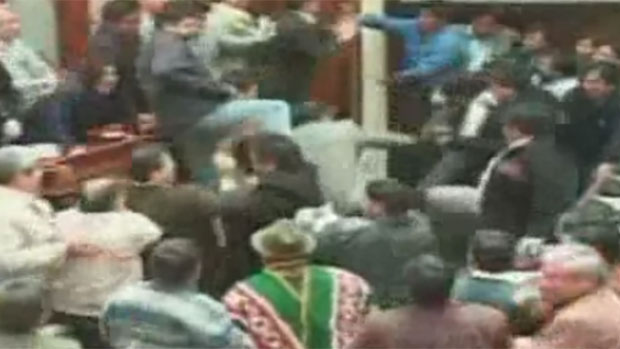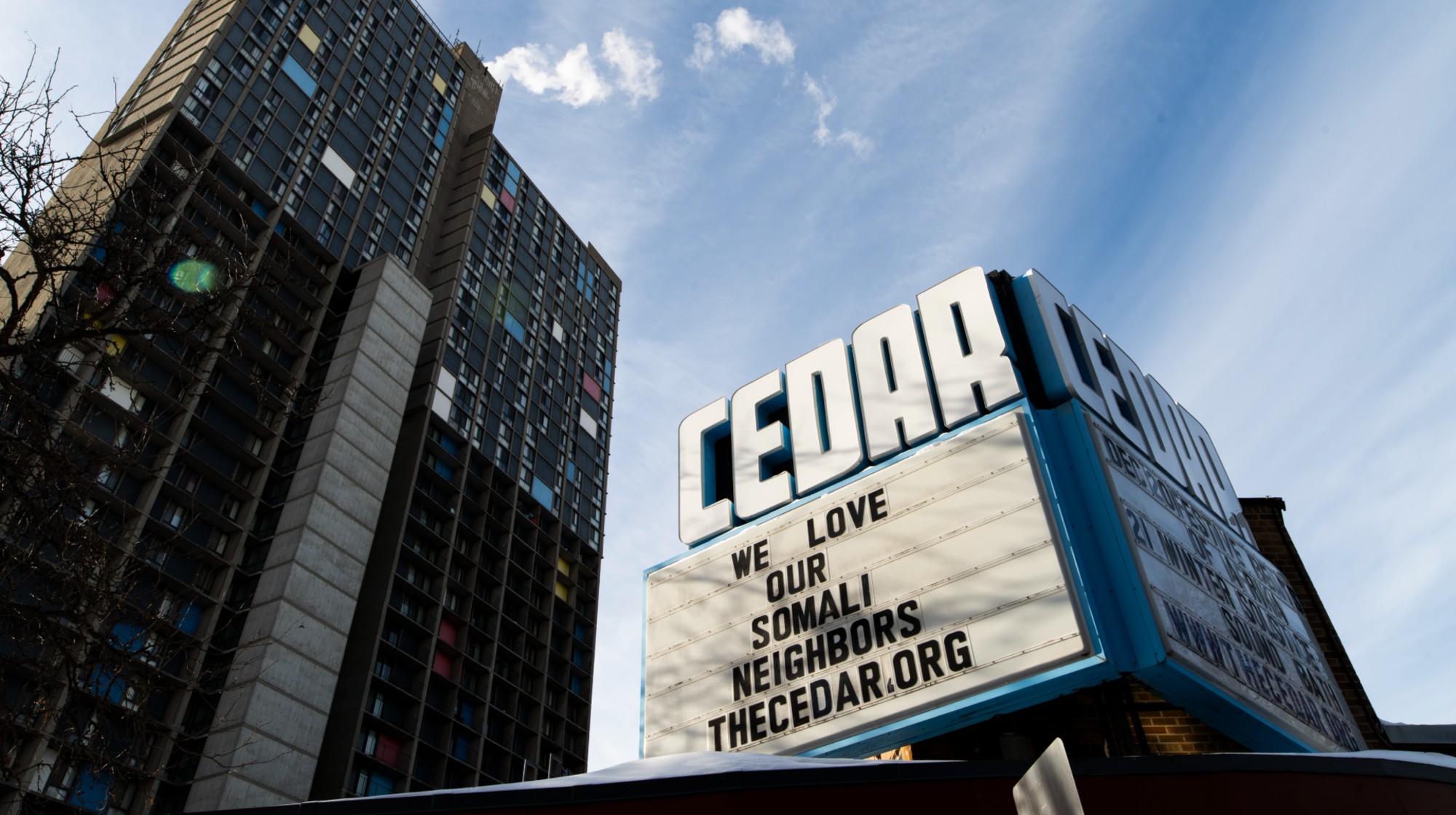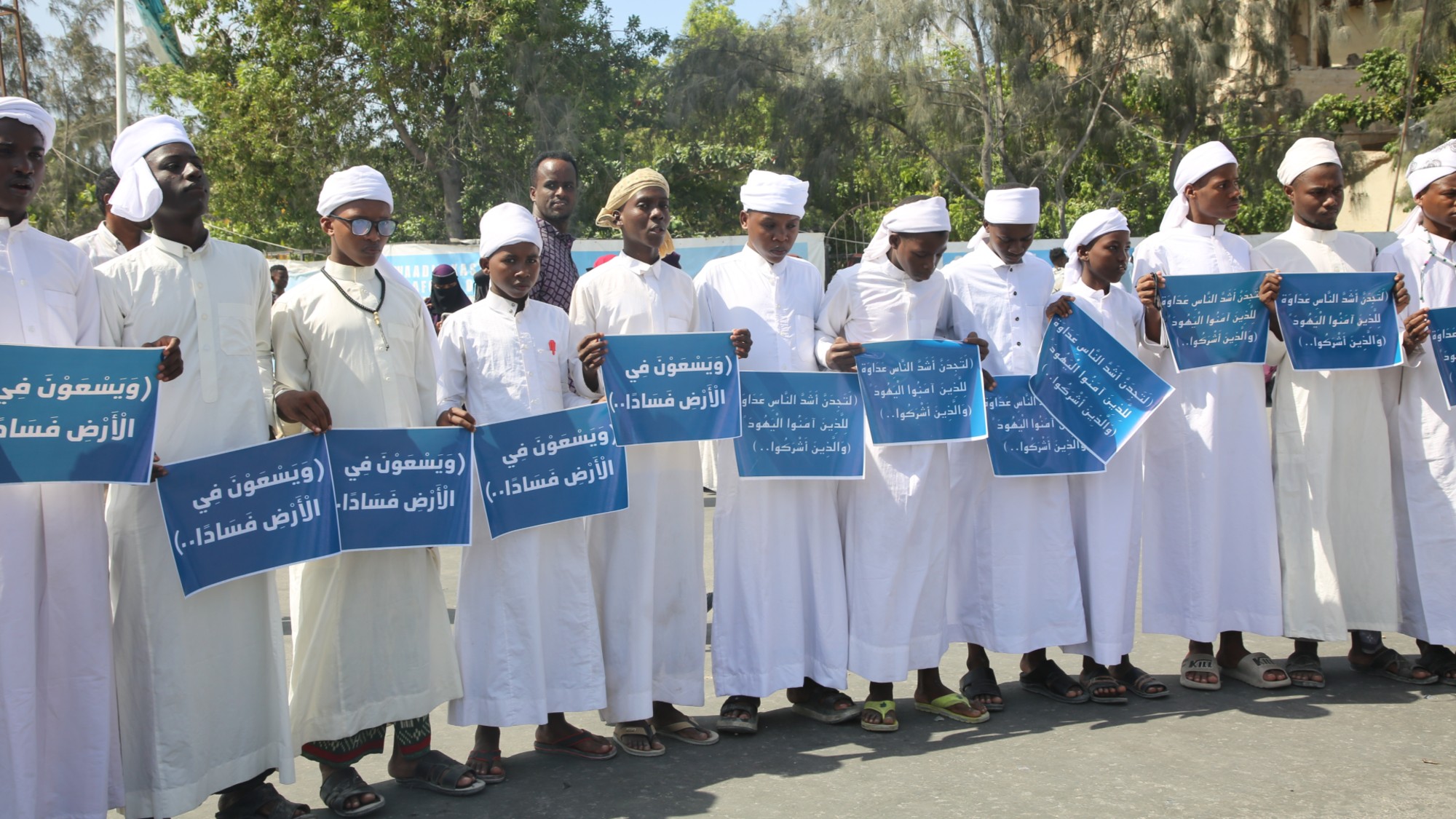Six of the best parliamentary brawls from around the world
A fight in the Ukrainian legislature is just the latest example of politicians resorting to violence...

A free daily email with the biggest news stories of the day – and the best features from TheWeek.com
You are now subscribed
Your newsletter sign-up was successful
A BRAWL broke out in the Ukrainian parliament yesterday during a debate over a bill which proposes to give the Russian language equal status to Ukrainian in some parts of the country.
Violent scuffles broke out between deputies loyal to Ukrainian President Viktor Yanukovych and MPs from pro-Western opposition parties. But the Ukraine is not the only country where excited politicians have resorted to their fists to settle their differences. Here are six parliamentary scuffles from around the world.
SOMALIA, DECEMBER 2011A playground-style rumble erupted in Somalia's parliament over the election of a new speaker. MPs stabbed each other with pens, slapped and yelled, with four ending up in hospital.
The Week
Escape your echo chamber. Get the facts behind the news, plus analysis from multiple perspectives.

Sign up for The Week's Free Newsletters
From our morning news briefing to a weekly Good News Newsletter, get the best of The Week delivered directly to your inbox.
From our morning news briefing to a weekly Good News Newsletter, get the best of The Week delivered directly to your inbox.
TAIWAN, MAY 2007Taiwan's parliament is renowned for descending into violence. On this occasion, members of the ruling Democratic Progressive Party became angry with the Speaker over questions about why the budget had been delayed. The house erupted into fisticuffs.
BOLIVIA, AUGUST 2007A mass fist fight erupted in the Bolivian parliament during a debate over whether or not to try judges on corruption charges. Water was thrown into the melee, while one man fought in full Bolivian garb.
INDIA, OCTOBER 1997Serious violence broke out in the Uttar Pradesh state legislature, culminating in members picking up microphone stands and using them as spears.
NIGERIA, JUNE 2010MPs' clothes were shredded during a brawl sparked by allegations that the Speaker was corrupt.
A free daily email with the biggest news stories of the day – and the best features from TheWeek.com
ARGENTINA, NOVEMBER 2010A disagreement over the budget turned sour after opposition MP Graciela Camano slapped another member, Carlos Kunkel, in the face before nodding curtly and walking swiftly away.
-
 Political cartoons for February 12
Political cartoons for February 12Cartoons Thursday's political cartoons include a Pam Bondi performance, Ghislaine Maxwell on tour, and ICE detention facilities
-
 Arcadia: Tom Stoppard’s ‘masterpiece’ makes a ‘triumphant’ return
Arcadia: Tom Stoppard’s ‘masterpiece’ makes a ‘triumphant’ returnThe Week Recommends Carrie Cracknell’s revival at the Old Vic ‘grips like a thriller’
-
 My Father’s Shadow: a ‘magically nimble’ film
My Father’s Shadow: a ‘magically nimble’ filmThe Week Recommends Akinola Davies Jr’s touching and ‘tender’ tale of two brothers in 1990s Nigeria
-
 How corrupt is the UK?
How corrupt is the UK?The Explainer Decline in standards ‘risks becoming a defining feature of our political culture’ as Britain falls to lowest ever score on global index
-
 ‘The mark’s significance is psychological, if that’
‘The mark’s significance is psychological, if that’Instant Opinion Opinion, comment and editorials of the day
-
 White House ends TPS protections for Somalis
White House ends TPS protections for SomalisSpeed Read The Trump administration has given these Somalis until March 17 to leave the US
-
 The high street: Britain’s next political battleground?
The high street: Britain’s next political battleground?In the Spotlight Mass closure of shops and influx of organised crime are fuelling voter anger, and offer an opening for Reform UK
-
 ‘The security implications are harder still to dismiss’
‘The security implications are harder still to dismiss’Instant Opinion Opinion, comment and editorials of the day
-
 Vance’s ‘next move will reveal whether the conservative movement can move past Trump’
Vance’s ‘next move will reveal whether the conservative movement can move past Trump’Instant Opinion Opinion, comment and editorials of the day
-
 What have Trump’s Mar-a-Lago summits achieved?
What have Trump’s Mar-a-Lago summits achieved?Today’s big question Zelenskyy and Netanyahu meet the president in his Palm Beach ‘Winter White House’
-
 Inside Minnesota’s extensive fraud schemes
Inside Minnesota’s extensive fraud schemesThe Explainer The fraud allegedly goes back to the Covid-19 pandemic